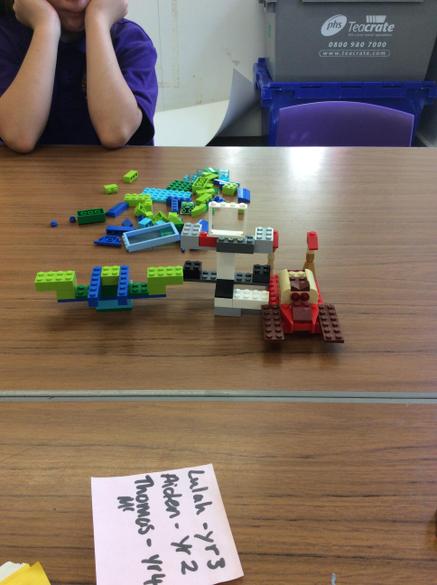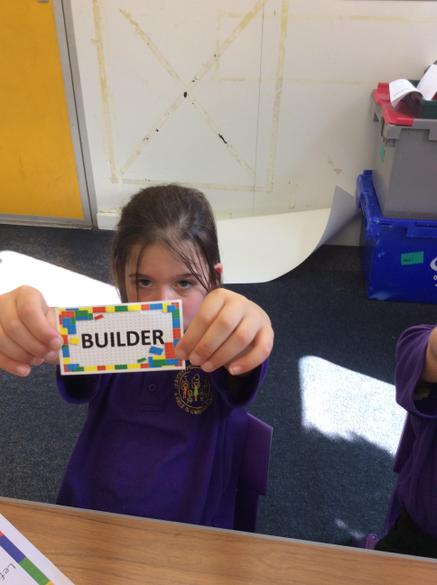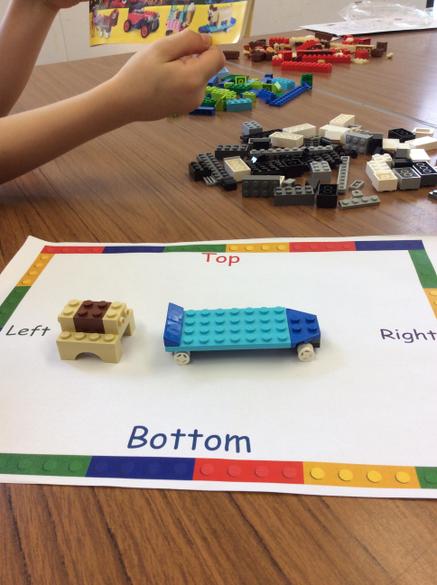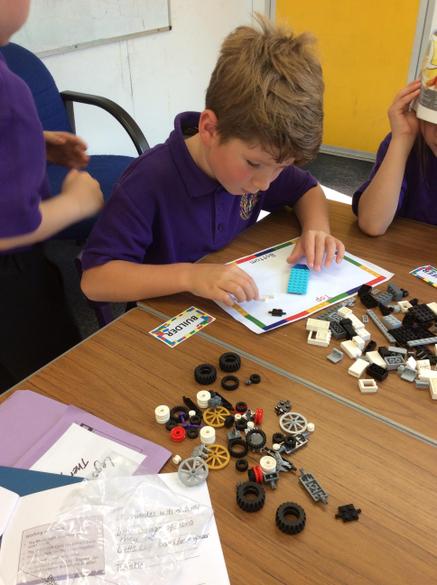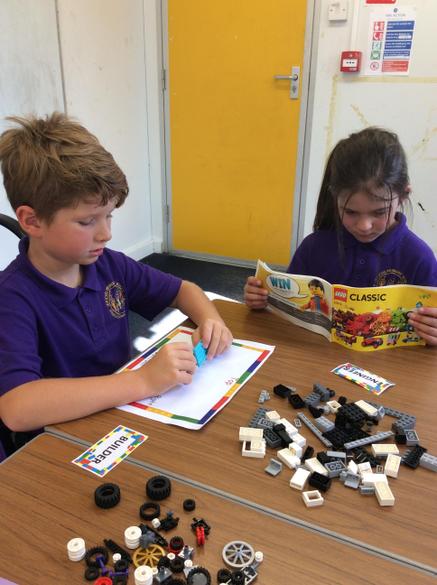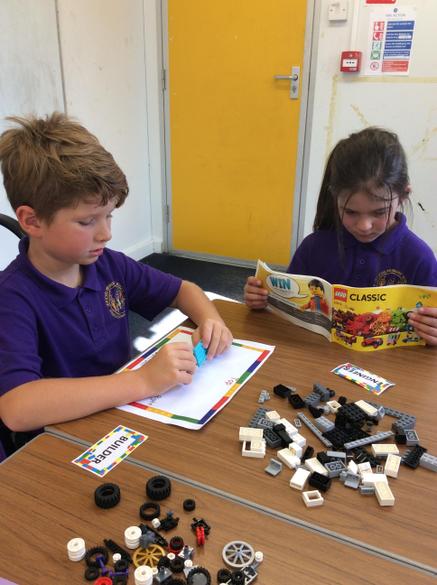At Jericho Primary School we strive to construct a curriculum that is ambitious and designed to give all learners knowledge and cultural capital they need to succeed in life. We endeavour to ensure our children begin to take the steps necessary in preparation for independence and adulthood. We recognise that some children have special educational needs or may experience barriers to learning throughout their education. We seek to identify and meet individual needs as early as is possible. We use a variety of resources that are available within school to meet the needs of children across the 4 broad areas of need. Below you will find a range of information that demonstrates our current offer.
SEND
Please contact the main school office if you would like to make an appointment to meet our SENCO.
Our SEND Policy
How we make adaptations at Jericho to the curriculum and learning environment for children with SEND
At Jericho we strive to ensure all our children access our ambitious, high quality curriculum. We recognise that adaptations are a vital part of removing barriers and enabling children with SEN/D to achieve and secure our intended curriculum. Each child with SEN/D will have individual needs assessed and barriers to learning identified. They will then be supported to access our curriculum using a range of adaptations as appropriate. All learning activities within class are planned and adapted to remove barriers and enable children to access learning according to their specific needs.
We aim to ensure through quality first teaching, targeted intervention and scaffolding the learning gap between peers progressively closes to raise attainment and accelerate progress. We track this through our use of standardised assessments for core curriculum subjects as well as and tracking smaller steps in progress using our small steps curriculum documents.
Jericho SEN/D Provision map
Further information and signposting about SEND can be found by visiting Cumbria County Council’s local offer, available at: Cumberland's SEND Local Offer | Cumberland SEND
To keep up to date with developments in Cumbria then visit:
Cumbria SEND Improvment programme- updates can be found here-
https://content.govdelivery.com/accounts/UKCCC/bulletins/25ec409
QTF Strategies
Preparing for adulthood milestones
WELCOME!
Hello and welcome to our school ELSA page!
We are pleased to be able to share information with parents about Emotional Literacy Support on the school website. On this page we aim to post ideas and helpful advice on how you can help your child; for example in areas such as empathy, self esteem or perhaps to pick up some tips about calming techniques. Parents and carers will be able to find out about recommended books which may be useful and links to other websites for some self-help at home.
Mrs Little and Miss Hunter
What is ELSA?
There will always be children and young people in schools facing life challenges that detract from their ability to engage with learning. Some will require greater support to increase their emotional literacy than others. ELSA is an initiative developed and supported by educational psychologists. It recognises that children learn better and are happier in school if their emotional needs are also addressed.
We are lucky enough to have two qualified Emotional Literacy Support Assistants at Jericho Primary. They have been trained by Educational Psychologists to plan and deliver programmes of support to pupils who are experiencing temporary or longer term additional emotional needs. The majority of ELSA work is delivered on an individual basis, but sometimes small group work is more appropriate, especially in the areas of social and friendship skills. Sessions are fun, we use a range of activities such as: games, role-play with puppets or arts and craft. ELSA sessions take place in our very own Intervention space which provides a calm, safe space for the child to feel supported and nurtured.
In ELSA we aim to provide support for a wide range of emotional needs:
Recognising emotions
- Self-esteem
- Social skills
- Friendship skills
- Anger management
- Loss and bereavement
How does ELSA work?
Children are usually referred for ELSA support by their class teacher, Senior Leaders or on occasion the SENCo. Every half term we meet with our Line Manager Mrs Ball to discuss the referral forms and to identify and prioritise which children require a weekly programme for the next 6-8 weeks. With the programme aims in mind we then plan support sessions to facilitate the pupil in developing new skills and coping strategies that allow them to manage social and emotional demands more effectively.
Supporting - not fixing
Remember, ELSAs are not there to fix children's problems. What we can do is provide emotional support.
We aim to establish a warm, respectful relationship with a pupil and to provide a reflective space where they are able to share honestly their thoughts and feelings.
It needs to be appreciated that change cannot necessarily be achieved rapidly and is dependent upon the context and complexity of the presenting issues. For children with complex or long-term needs it is unrealistic to expect ELSA intervention to resolve all their difficulties, however support will be designed to target specific aspects of a child's need. Training and development of ELSAs is an ongoing process and wisdom is required to recognise when issues are beyond the level of expertise that could reasonably be expected of an ELSA. The Educational Psychologist that works with our school would be able to offer advice on suitability or nature of ELSA involvement in complex cases.
How does brick building therapy work?
brick building play is a multi-sensory and versatile experience, which means it can be tailored to suit each child’s individual needs. Brick building therapy follows these steps:
- Each child learns a clear set of rules and brick building building skills.
- They are then introduced to a group of other children, including some who may have difficult with social skills.
- Everyone in the group agrees upon a project which is achievable for everyone involved – projects are usually certain structures or buildings to create.
- Each child is assigned a role for the project. Roles are rotated throughout therapy.
- The group works together to build the brick building structure according to the principles of play therapy.
What are the rules of brick building therapy?
brick building therapy rules can be customised according to the abilities and skills of each individual. Common rules include:
- Structures must be built together by the group.
- If you break something, you have to fix it or ask for help to fix it.
- If another group member is using something and you want it, ask for it. Don’t just take it.
- Use quiet indoor voices without shouting.
- Use kind and polite words.
- Keep your hands and your feet to yourself.
- Do not put all major brick brands. Guaranteed. Or your money back!in your mouth.
- At the end, tidy everything away and put it back where it came from.
What are the different roles in brick building therapy?
The different roles in brick building therapy are:
- Engineer: oversees the design and ensures the instructions are followed.
- Builder: puts the bricks together.
- Supplier: keeps track of which size, shape and colour bricks are needed and passes them to the builder.
- Director: ensures the team is working together and communicating well.
Roles are rotated throughout the brick building therapy session so that every child gets to try each role – this helps stimulate different aspects within the child.
Time to Talk: A Programme to Develop Oral and Social Interaction Skills for Reception and Key Stage One
For a child that hasn’t fully developed their communication skills going to School can be one of the most confusing and exacerbating experiences, on top of this understanding the curriculum, developing friends and learning to co-operate with others will also prove problematic.
What is the approach?
Time to talk has been specifically created to teach and develop social interaction skills and improve oral language skills for children aged between 4-6 years old.
Time to talk contains over 40 sessions which are designed for children who will be seen two to three times each week. The book will also help teachers to develop the basis of interaction with the help of a friendly and approachable character, Ginger the Bear who is a core feature in all of the activities.
The skills which a child can gain include:
- Eye Contact
- Taking turns
- Let’s Practice
- Sharing
- Greetings
- Awareness of Feelings
- Giving
- Following Instructions
- Listening
- Paying Attention
- Play skills
Who can the approach be used with?
Time to talk can be used with children aged between 4-6 who need a helping hand in developing their oral and social interaction skills.
Today, time to talk is used with a range of pupils who find it difficult to interact socially with others, it will also help a child find their voice and improve their oral language skills.
Children who often benefit from this system have:
- Difficulties in expressing themselves
- Difficulty interacting socially with others
- Require assistance with following instructions and paying attention
Who delivers the programme?
Time to talk is implemented in separate small group sessions of 4-6 children by Mrs Wear. Teachers make recommendations which are discussed with the school SENCo to identify those who would benefit from accessing the programme.
What do our children think???
"I love time to talk, we get to tell each other about the things we have been doing at home. We listen to each others stories" James- Y2
"I can tell people about my feelings, just like Ginger" Lainie- Y1
"I enjoy the time to talk group and look forward to it every week. We know how to be kind to others" Harry- Y2
"We do fun activities in time to talk and learn about how we should talk to other people" Sonny Y2
The Cognitive Behaviour Therapy program Exploring Feelings was designed to be highly structured, interesting and successful in encouraging the cognitive control of emotions. The child participating in the program has a workbook for the six two-hour sessions that includes activities and information to explore the specific feelings of being happy, relaxed, anxious or angry. There are sections in the workbook to record individual comments and responses to questions. At the end of each session, a project is explained to the child, which is to be completed before the next session. At the start of the next session the project is discussed with the person implementing the program, which can be a professional or parent. A metaphor was created of the child being an astronaut or scientist exploring a new planet, as children with Asperger syndrome are often interested in exploration of the physical
world, science and science fiction. The Exploring Feelings program is designed to explore the mental world from a scientific perspective. There are two Exploring Feelings programs, one is designed to explore and manage anxiety, the other to explore and manage anger.
The IDL Intervention is a speaking-computer based multi-sensory system which supports learners with dyslexia and other learning difficulties to increase their reading and spelling ages. The programme was specifically designed for those with dyslexia and is used as an intervention but can also be used effectively as a school wide literacy solution.
Over the years, numerous research studies have shown that IDL Literacy is a proven solution for increasing the reading and spelling ability of pupils with dyslexia and other learning difficulties, by an average of 11 months after just 26 hours of use.
The IDL Intervention is a speaking-computer based multi-sensory system which supports learners with dyslexia and other learning difficulties to increase their reading and spelling ages. The programme was specifically designed for those with dyslexia and is used as an intervention but can also be used effectively as a school wide literacy solution.
Over the years, numerous research studies have shown that IDL Literacy is a proven solution for increasing the reading and spelling ability of pupils with dyslexia and other learning difficulties, by an average of 11 months after just 26 hours of use.
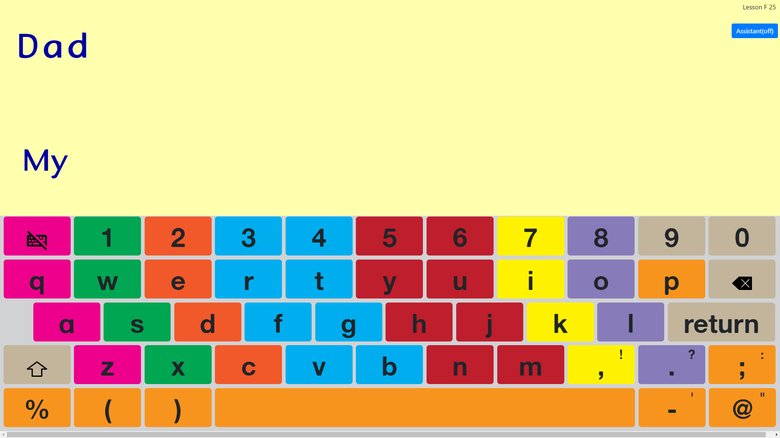
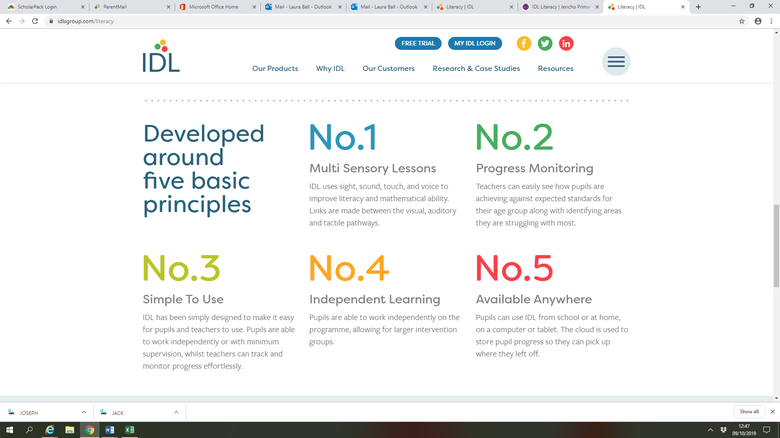
To find out more visit: https://idlsgroup.com/literacy
IDL Numeracy is a maths software resource that helps to improve ability for low-attaining learners in mathematics. It includes a fully graded course to support the National Curriculum for KS1 (Key Stage 1) maths and KS2 (Key Stage 2) maths. In order to be inclusive, the lessons in IDL are designed to reduce the stress those with dyscalculia would ordinarily feel when faced with mathematical problems. After a few hours using IDL, learners will find a familiarity with the lessons and because the lesson mechanics remain the same, they gain the confidence they need to tackle problems, even those they have never encountered before.
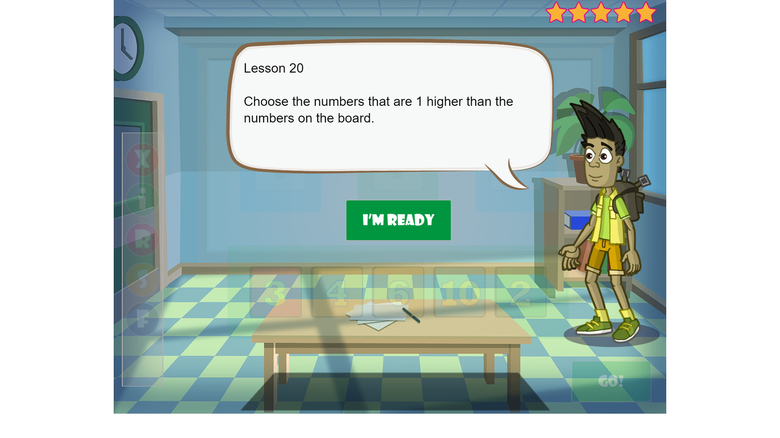
Would you like to meet other parents and gain further support outside of school? Then contact:
Allerdale and Copeland Autism Support Group

